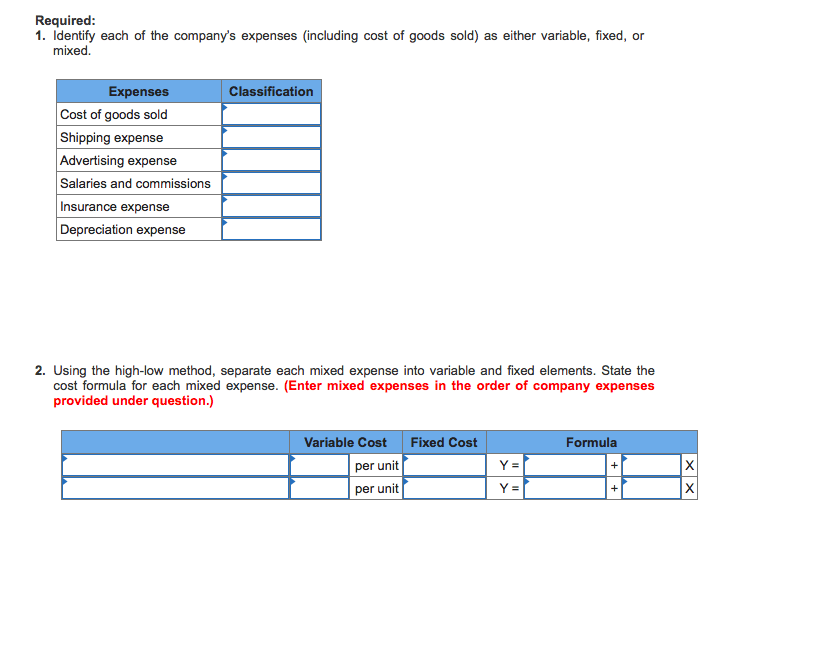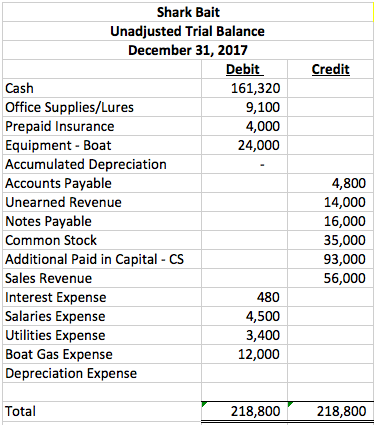
It is important to know the difference between the two terms, but the words subjective and objective are not actually used that frequently in English. However, the concepts of subjectivity and objectivity are of huge importance in journalism, science, literature, philosophy and a whole host of other areas. Whether something is subjective or objective can lead to a lot of debate, and a good philosopher could probably convince you that nothing is truly objective.
You can’t find an inch of exaggeration with objective vs subjective writing, and so it is mostly saved for more formal communication. Subjective assessment can be influenced by personal biases and emotions, which can lead to inaccurate results. Objective assessment, on the other hand, is based on facts and evidence, resulting in more accurate and reliable outcomes. Anything that is subjective will contain personal opinion, assumptions, and beliefs. You’ll most commonly find subjective information in newspaper editorials, blogs, and comments on the internet. If something is subjective, it’s not suitable for decision making or reporting in the news.
They are used to describe different ways of looking at things, and they have different meanings depending on the context in which they are used. It’s important to note that achieving complete objectivity is a difficult task, since everyone is informed by their backgrounds and experiences. While people in these disciplines should strive for objectivity, they should also consider how their experiences may affect the product of their work. Now that we’ve covered what subjective means, let’s go over what objective means. The Objective is a term used to describe a goal or a result that is measurable and achievable.
Final Words on the Difference Between Subjective vs. Objective
Objective refers to an unbiased and balanced statement that represents facts about something. The statement is not coloured by the past experiences, prejudices, perceptions, desires or knowledge of the speaker. Therefore, they are independent and external to the mind of the specific person.
The second sentence is an objective statement of fact that can be proven. If a statement relies on personal feelings or beliefs, it’s likely to be subjective. ” objective language will simply state that “You have fifty bags.” As you can see, there is no trace of judgment on the second statement. The best way to think about the difference between objective and subjective is by looking at the idea of an opinion. An opinion, by its very definition, is subjective, because it is a personal view on a subject which might have other possibilities. If we say an opinion is objective, it technically no longer is an opinion because personal interpretation has been removed.
Clinical utility of maximum blink interval measured by smartphone … – Nature.com
Clinical utility of maximum blink interval measured by smartphone ….
Posted: Mon, 21 Aug 2023 09:55:56 GMT [source]
In this article, I will focus on their use as they relate to the concepts of objectivity and subjectivity in the philosophy of knowledge, or in simpler terms, to facts and opinions. In everyday life, your objective opinion is the one that sets aside your subjective preferences or feelings about something and instead assesses it based on facts and reality. Review the following sentences and identify which sentences use objective language and which use subjective language and why. The first sentence contains objective language; the language focuses on the facts of the study that can be proven.
Impact of Objective Writing
This makes them more reliable, although they are not always the most compelling pieces. Capitalized words are also a technique accepted in subjective and informal pieces of writing. You may find some capitalization in blogs or social media posts as an attempt to create emphasis on that word and what it is trying to convey. These statements are very clearly made from the speakers’ own opinions, and their own experiences. In the book review, the critic provided an objective summary of the plot and style, while also sharing their subjective thoughts on the novel’s emotional impact.

Subjective statements are often used to express personal opinions, emotions, or preferences. Subjective writing is based on personal viewpoints, opinions, and biases. It is often used in creative writing, such as poetry, fiction, and personal essays. Subjective writing can be more engaging and captivating, as it allows the writer to express their emotions and feelings. However, it can also be less credible and objective, as it is based on personal experiences and perspectives.
Qualities of subjective writing
Official and legal matters use objective writing while other texts such as books, blogs, journals, speeches use subjective writing. To be a better writer, it is advised that one always has objective information to back up the statements they are making even if the content is about perception and beliefs. At the end of the discussion, objective information is one that produces the complete truth, i.e. it presents a story from all the angles in a systematic way. On the contrary, subjective information is coloured by the character of the person providing it.

Subjective relates to personal viewpoints, experiences, or perspectives, whereas objective refers to factual data that is not influenced by personal beliefs or biases. Objective writing as opposed to subjective writing gives facts, data, and avoids personal biases. It avoids expressing any concern, feelings, or anything that is not a proven fact or data. Watch out for subjective information that’s disguised as objective analysis. For example, a newspaper headline that says “New Study Shows That Dogs Are 85% Better Than Cats” sounds like an objective fact.
Comments: Objective vs Subjective
Common ergative verbs used in business include begin, start, increase, decrease, accumulate, reduce, advance, and improve. Since the passive voice removes the actor from the sentence, using it is an effective way of establishing an objective tone. While using the passive voice is effective, a report that relies heavily on it would be cumbersome to read, so it should be used sparingly. For example, you might ask a friend for an objective opinion about whether or not you should break up with your boyfriend. If the answers to any of the above questions are “yes,” you’re probably dealing with an objective statement.
But because it is a personal interpretation open to debate, it is said to be subjective. In conclusion, the choice between subjective and objective writing depends on the purpose, audience, and context of the writing. Both forms have their strengths and weaknesses, and it is essential to choose the appropriate one to achieve the desired effect. When it comes to English writing, the choice between subjective and objective writing can have significant implications. Both forms have their advantages and disadvantages, and it is crucial to understand them to make an informed decision. Being able to tell the difference between objective and subjective information will make you a better communicator, decision-maker, and problem-solver.
Subjective writing provides a more personal perspective and can be used to express opinion, emotion, and feeling. On the other hand, objective writing is fact-based and can be used to inform the reader about a specific topic. The choice of writing that best serves a purpose is ultimately up to the author. The distinction Objective vs. Subjective Writing between subjective and objective writing is essential because each type has its purpose. For example, subjective writing is often used to express an opinion or perspective, while objective writing is used to inform and educate. Firstly, we should note that this article pertains only to the facts and opinions.

Objective statements, as opposed to subjective ones, are backed up by fact. If someone makes an objective statement, they can show you the evidence to support it. Objective statements often contain statistics that can be verified if needed. When discussing controversial topics, it’s essential to remain objective so you don’t let subjective biases influence your argument. You can read more about subjective and objective cases in grammar here. An objective perspective refers to a viewpoint or approach that is unbiased, impartial, and based on facts and verifiable evidence.
Join over 15,000 writers today
If you’re writing a piece, you must decide if you are using an objective or subjective point of view. A subjective point of view is based on personal experiences and feelings, while an objective point of view is based on observation and data. In grammar, objective refers to the object of a sentence, while subjective refers to the subject of a sentence. If you’re writing with pronouns, the word will change depending on how you use it in the sentence.
- With regard to the words themselves, use objective for an unbiased observation, independent from personal views, and subjective for a biased evaluation, influenced by personal opinion.
- While people in these disciplines should strive for objectivity, they should also consider how their experiences may affect the product of their work.
- The words “objective” and “subjective” have similar uses and contexts but very different meanings.
- One way to remember the difference is to concentrate on the o in objective and observation.
Economics, medicine, and history are fields in which I would see more objective writing because these are fields that are about facts. In economics, you read about numbers, formulas, and statistics that exist and that can be verified and proven. In medicine, you read about proven information that describes what exists in the human body and principles of health and disease that are based on studies and experiments.
What to Do When Your Script Coverage Tells You Your Script is … – ScreenCraft
What to Do When Your Script Coverage Tells You Your Script is ….
Posted: Mon, 21 Aug 2023 18:01:20 GMT [source]
Depending on what industry you’re in, you may lean more heavily on one type of information than the other. Below, we’ll talk about the difference between objective and subjective, how to use them in writing, and when each one is appropriate. Here’s a trick to help you remember the difference between subjective and objective. Similarly, if you hear “subjective data,” you probably have someone who doesn’t know the difference between these two terms. In grammar and general writing, these two terms are considered opposites, and understanding them and how to use them correctly is an important part of being a skilled writer.
Subjective, on the other hand, means based on individual opinion or experience. Best Writing is an all-in-one platform connecting writers with businesses. Technically, one can say anything and they need not produce a data back-up unless it is for an official purpose like a research paper, or legal procedure. Differentiating between a thriller and a horror film can be a highly subjective process.



